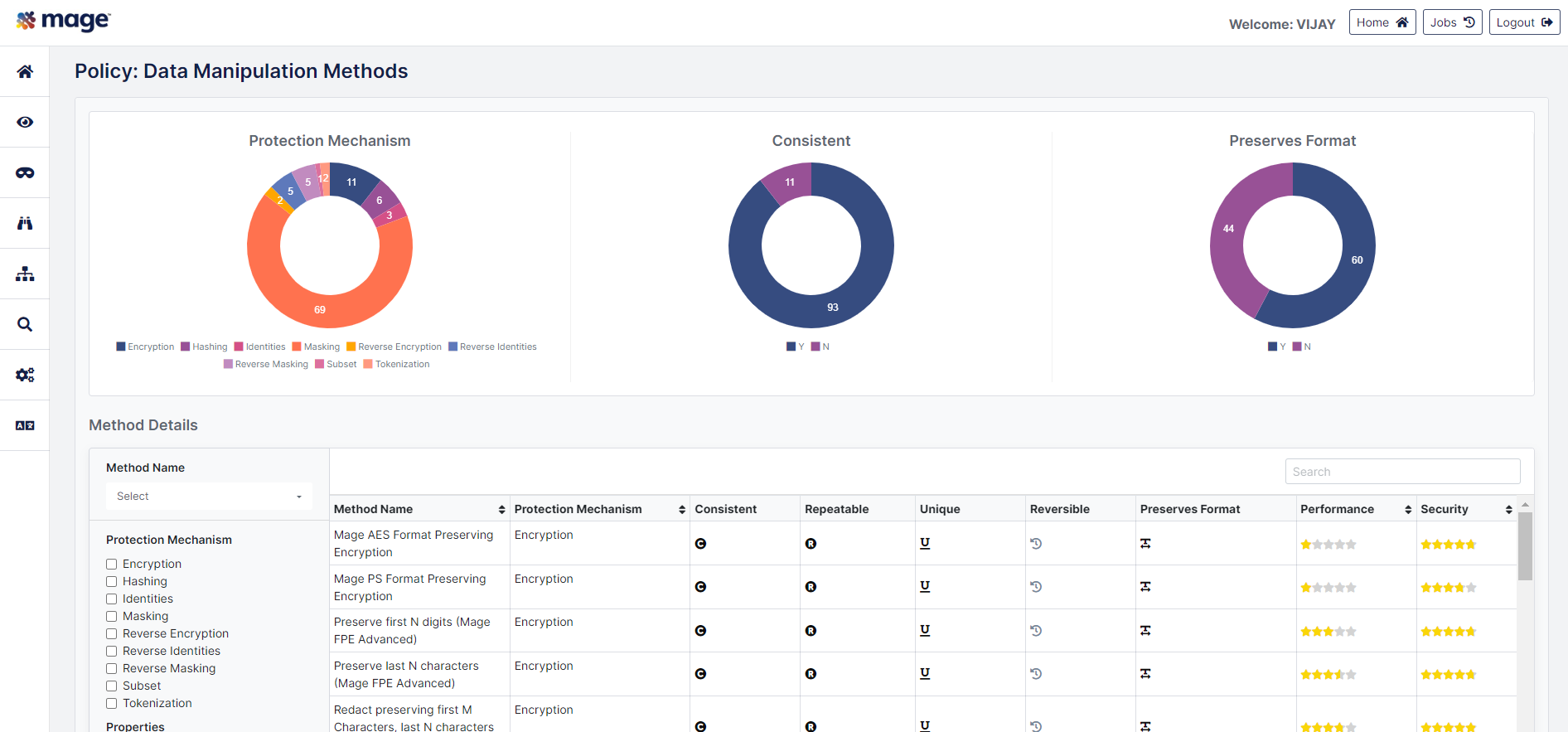Mage Data
Photo Gallery
 |
 |
Mage Data


Additional Info
| Company | Mage Data |
| Website | http://www.magedata.ai |
| Company size (employees) | 50 to 99 |
| Headquarters Region | North America |
| Type of solution | Software |
Overview
Mage’s solutions are well suited for enterprises with a diverse data landscape – from mainframes to relational databases to more modern cloud-based databases, file servers (on-cloud or on-premises), and SaaS applications. From a single, enterprise-wide platform, Mage enables stakeholder collaboration to drive data security policy using patented solutions, including data discovery and classification, the use of privacy-enhancing/preserving techniques, static & dynamic data masking, database activity monitoring, DSAR (Data Subject Access Requests) automation, etc. Using a zero-trust, no-code approach, Mage enables enterprise-wide security, regulatory compliance by taking a risk-elimination approach.
How we are different
1. One-stop shop for data security.
Mage platform has enabled global leaders to share data confidently while reducing the risk of carrying sensitive data by up to 95%.
2. Purpose-built to solve global enterprise data security issues
Built from the ground up – so shared intelligence, easy deployment, etc. Most, if not all, competition products are produced through acquisitions or partnerships and are rarely constructed from the ground up. The Mage platform is a single, integrated platform that has been purpose-built to solve the issue of data security faced by global enterprises. Being a single integrated platform, each of Mage's product modules works seamlessly, and the intelligence garnered can be shared across the modules. While Mage provides capabilities within the individual modules, it can also integrate seamlessly with existing solutions that organizations may possess to ensure smooth functioning with the IT landscape of the customer.
3. Data store compatibility options
Unlike most of our competitors, the Mage platform is compatible with a wide variety of data stores that include both the legacy data stores and the new-gen data stores hosted on-cloud or on-premises.



